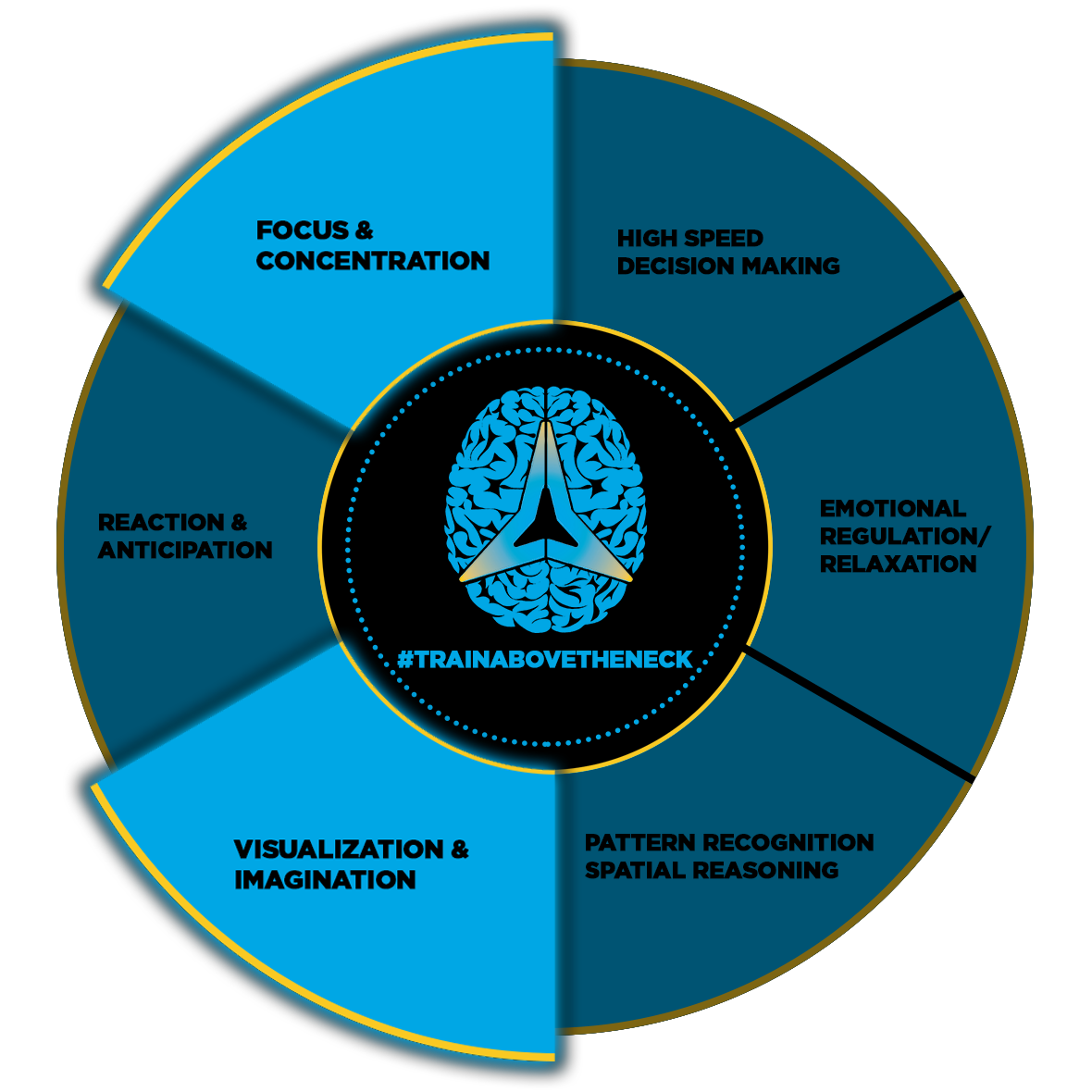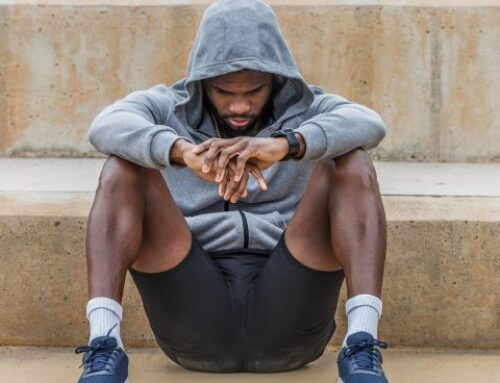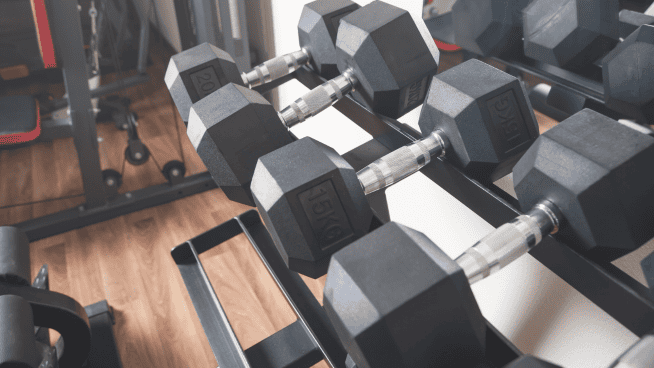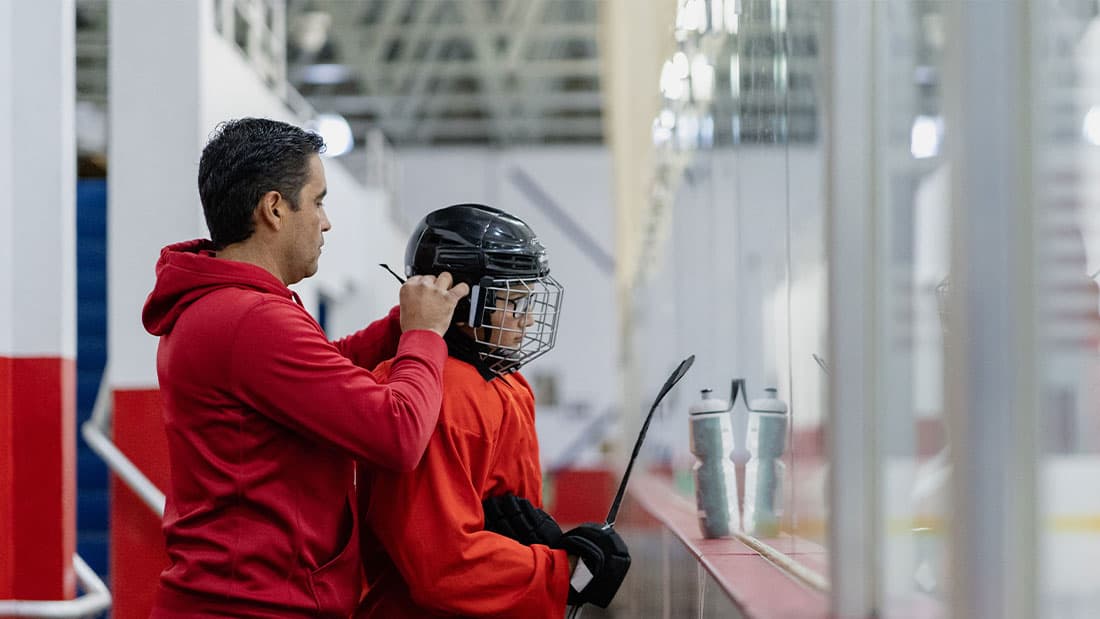The Mental Benefits of Manny Pacquiao’s Intense Training Routine
Across several sports, many pro athletes have developed intense routines in their training. One such example of an extreme trainer is Manny Pacquiao. At 36 years old, his training is going to matter more than ever as he prepares for what may be the biggest fight of his career against Floyd Mayweather Jr. on Saturday night.
Every day Pacquiao pushes himself through long runs and sprints, stair runs, crunches and training in the ring. (Learn about the strangest training techniques Pacquiao has ever tried.) He is determined to prepare his mind for fighting by focusing on each of the tasks in his training. With all the success Pacquiao has already achieved, the skills he has already developed, and the level of fitness he has already reached, one might expect him to train less on his fundamental boxing techniques.
The Science of the Athletic Brain

So, what’s the point of this seemingly endless devotion to practice? Are there additional benefits we can’t see on the surface? A group of neuromechanic researchers at Integrative Physiology lab at the University of Colorado-Boulder found we can make subtle improvements in efficiency in our motor skill actions even after we’ve mastered the muscular movements of the task.
They asked a group of volunteers to learn to manipulate a mechanical arm so that it would move a cursor on a screen to a target area. Learning this novel task involved vision, arm movements and repeated feedback to succeed. After 200 trials to learn the basics, a force field was added to push back on the mechanical arm enough to force a quick adjustment and update to the skill that had just been learned. Even after the volunteers had learned to move the cursor, they kept repeating the skill over 500 times.
During this entire learning process, the test subjects’ muscular activity was measured through electrodes on six arm muscles while their breathing was tracked through a mouthpiece. Surprisingly, during the experiment, the metabolic rates of the volunteers continued to decline even after their muscular activity had leveled off. In other words, the brain-body cost to performing the task became more efficient over time, even after the muscles showed the task had been mastered.
“We suspect that the decrease in metabolic cost may involve more efficient brain activity,” Alaa Ahmed, assistant professor at CU, said. “The brain could be modulating subtle features of arm muscle activity, recruiting other muscles or reducing its own activity to make the movements more efficiently.”
Fighting against the world’s best in front of huge crowds is certainly a tough test of brain-body efficiency. If Manny Pacquiao can save just a fraction of metabolic energy through the fine-tuning of his skills, it may be just the edge he needs to win the fight.
“The message from this study is that in order to perform with less effort, keep on practicing, even after it seems as if the task has been learned,” said Ahmed. “We have shown there is an advantage to continued practice beyond any visible changes in performance.”
So, even once you’re performing your basic tasks at a high level, keep training these. Don’t become satisfied. Don’t become complacent. Getting through the grind of everyday training can be extremely tough, but it can also be the difference between finishing the fight in the late rounds, sinking that free throw in the fourth quarter, or hitting that walk-off home run in extra innings. Conquer the seemingly impossible in your training so your mind is prepared to do so in your games.
RELATED: The Athletic Brain: How to Learn to Anticipate
Tips for Staying Engaged in Training Through Visualization/Imagination
1. Imagine you’re in-game: Imagine how you do this same task, in-game. The reason you’re repeating this task is because it helps you win.
2. Activate your game-timing: As you train, think about the timing of doing these tasks in a real game environment. When you use these skills is as important as how you use them.
3. Know that you’re training your Brain: Remember you are training your brain and not just your body. Your brain is what you’re going to rely on when the game matters the most.
Join Axon Sports on Twitter and Facebook.
RECOMMENDED FOR YOU
MOST POPULAR
The Mental Benefits of Manny Pacquiao’s Intense Training Routine
Across several sports, many pro athletes have developed intense routines in their training. One such example of an extreme trainer is Manny Pacquiao. At 36 years old, his training is going to matter more than ever as he prepares for what may be the biggest fight of his career against Floyd Mayweather Jr. on Saturday night.
Every day Pacquiao pushes himself through long runs and sprints, stair runs, crunches and training in the ring. (Learn about the strangest training techniques Pacquiao has ever tried.) He is determined to prepare his mind for fighting by focusing on each of the tasks in his training. With all the success Pacquiao has already achieved, the skills he has already developed, and the level of fitness he has already reached, one might expect him to train less on his fundamental boxing techniques.
The Science of the Athletic Brain

So, what’s the point of this seemingly endless devotion to practice? Are there additional benefits we can’t see on the surface? A group of neuromechanic researchers at Integrative Physiology lab at the University of Colorado-Boulder found we can make subtle improvements in efficiency in our motor skill actions even after we’ve mastered the muscular movements of the task.
They asked a group of volunteers to learn to manipulate a mechanical arm so that it would move a cursor on a screen to a target area. Learning this novel task involved vision, arm movements and repeated feedback to succeed. After 200 trials to learn the basics, a force field was added to push back on the mechanical arm enough to force a quick adjustment and update to the skill that had just been learned. Even after the volunteers had learned to move the cursor, they kept repeating the skill over 500 times.
During this entire learning process, the test subjects’ muscular activity was measured through electrodes on six arm muscles while their breathing was tracked through a mouthpiece. Surprisingly, during the experiment, the metabolic rates of the volunteers continued to decline even after their muscular activity had leveled off. In other words, the brain-body cost to performing the task became more efficient over time, even after the muscles showed the task had been mastered.
“We suspect that the decrease in metabolic cost may involve more efficient brain activity,” Alaa Ahmed, assistant professor at CU, said. “The brain could be modulating subtle features of arm muscle activity, recruiting other muscles or reducing its own activity to make the movements more efficiently.”
Fighting against the world’s best in front of huge crowds is certainly a tough test of brain-body efficiency. If Manny Pacquiao can save just a fraction of metabolic energy through the fine-tuning of his skills, it may be just the edge he needs to win the fight.
“The message from this study is that in order to perform with less effort, keep on practicing, even after it seems as if the task has been learned,” said Ahmed. “We have shown there is an advantage to continued practice beyond any visible changes in performance.”
So, even once you’re performing your basic tasks at a high level, keep training these. Don’t become satisfied. Don’t become complacent. Getting through the grind of everyday training can be extremely tough, but it can also be the difference between finishing the fight in the late rounds, sinking that free throw in the fourth quarter, or hitting that walk-off home run in extra innings. Conquer the seemingly impossible in your training so your mind is prepared to do so in your games.
RELATED: The Athletic Brain: How to Learn to Anticipate
Tips for Staying Engaged in Training Through Visualization/Imagination
1. Imagine you’re in-game: Imagine how you do this same task, in-game. The reason you’re repeating this task is because it helps you win.
2. Activate your game-timing: As you train, think about the timing of doing these tasks in a real game environment. When you use these skills is as important as how you use them.
3. Know that you’re training your Brain: Remember you are training your brain and not just your body. Your brain is what you’re going to rely on when the game matters the most.
Join Axon Sports on Twitter and Facebook.












